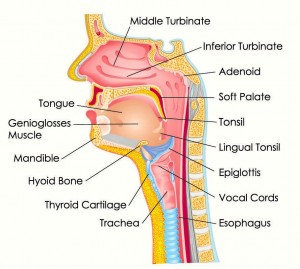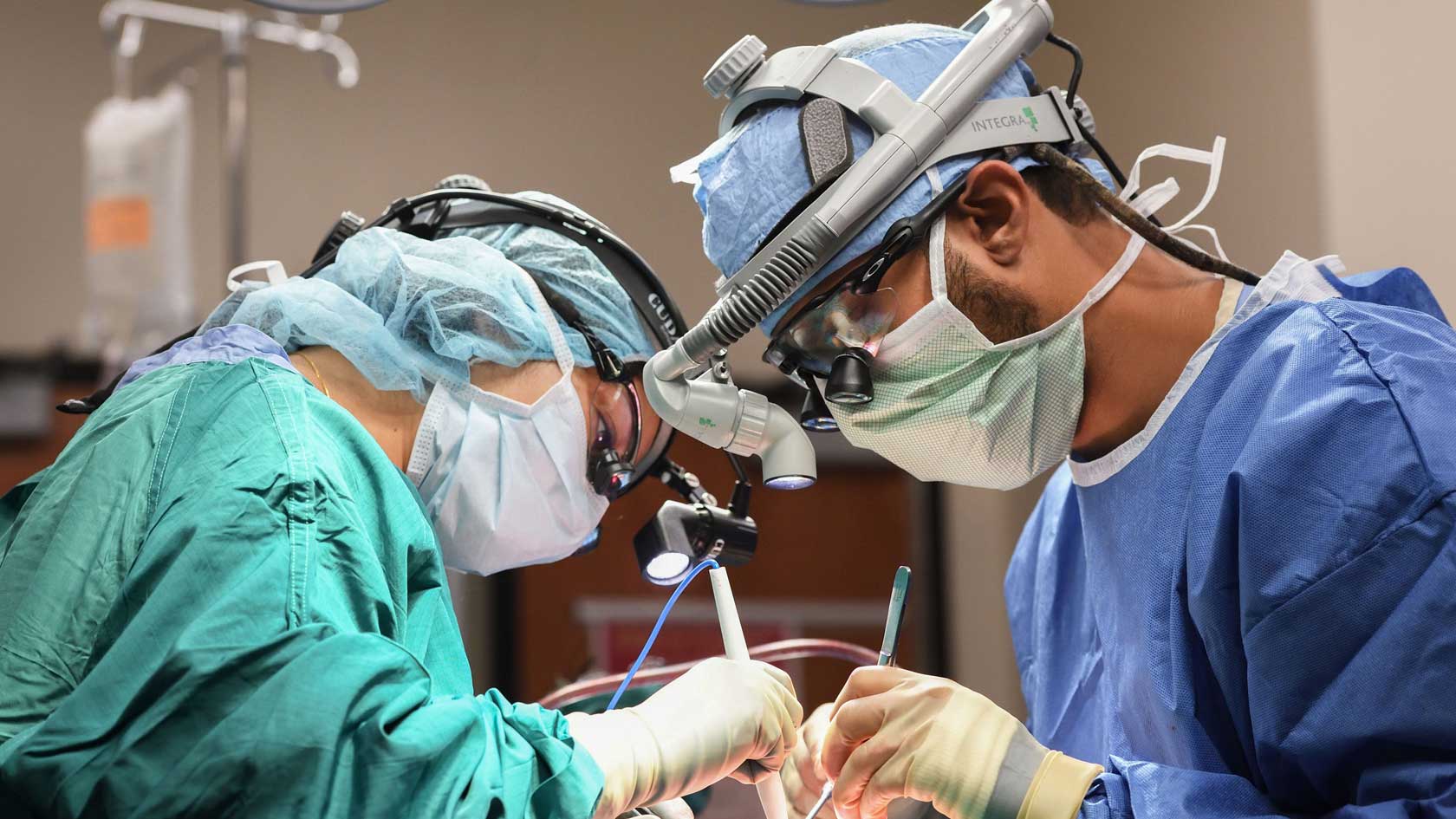Ear, Nose, and Throat Doctor: Who They Are and What They Do
Ear, Nose, and Throat Doctor: Who They Are and What They Do
Blog Article
Checking out the Area of Otolaryngology: What to Expect When You Speak With an ENT
Otolaryngology, typically referred to as ENT, incorporates the diagnosis and treatment of nose, ear, and throat disorders. For those experiencing related issues, speaking with an ENT specialist can give clearness and relief. Understanding what to expect during such assessments is necessary for effective communication and treatment. This review will certainly lay out vital elements of the ENT experience, including common factors for visits and the processes associated with diagnosis and treatment.

Recognizing Otolaryngology: A Review
Otolaryngology, typically described as ENT (Throat, ear, and nose) medicine, is a customized branch of medicine that concentrates on the medical diagnosis and therapy of conditions influencing these important locations of the human body. This area encompasses a vast array of conditions, consisting of those pertaining to hearing, equilibrium, breathing feature, and speech. Otolaryngologists are trained to handle both medical and clinical treatments, making use of advanced methods and modern technologies. Their experience extends beyond standard conditions, addressing concerns such as allergies, sinus infections, and hearing loss. Furthermore, they play a crucial role in the management of head and neck cancers, supplying comprehensive care customized to individual client requirements. On the whole, otolaryngology remains necessary for keeping wellness and quality of life in afflicted people.
Typical Factors to See an ENT Expert
Numerous individuals look for the know-how of an ENT expert for a selection of factors, mirroring the diverse nature of problems that influence the ear, throat, and nose. Typical concerns consist of persistent sinusitis, which frequently brings about relentless nasal congestion and facial discomfort. Allergies and their associated signs and symptoms, such as itching and sneezing, also motivate visits to these professionals (Sinus). Hearing loss, whether progressive or abrupt, is one more significant reason for assessment. Additionally, individuals might seek examination for throat disorders, including consistent hoarseness or ingesting difficulties. Sleep apnea, characterized by disturbed breathing during sleep, is often addressed by ENT professionals also. Each of these conditions highlights the relevance of specialized treatment in managing complicated ENT-related health problems
Preparing for Your ENT Appointment
When planning for an ENT visit, it is necessary to collect relevant info and take into consideration any type of certain concerns. People ought to compile a comprehensive case history, consisting of previous ear, nose, or throat concerns, surgical treatments, and current medicines. Documenting signs-- such as intensity, regularity, and duration-- can offer beneficial understandings for the ENT expert. In addition, people should prepare a list of inquiries they wish to ask, ensuring that all problems are attended to throughout the see. Bringing along any kind of relevant clinical documents or examination outcomes can even more help the ENT in comprehending the individual's problem. Lastly, patients should confirm their consultation details, consisting of time, area, and day, to reduce any type of final complication. Proper prep work can improve the performance of the consultation and result in better end results.
What to Anticipate During the Consultation
As the assessment begins, the client can anticipate to take part in a thorough conversation with the ENT specialist regarding their symptoms and clinical history. The specialist will certainly ask concerning the period, frequency, and seriousness of signs and symptoms such as hearing loss, nasal blockage, or sore throat. In addition, the client's previous clinical conditions, drugs, and any type of appropriate family members background will certainly be assessed, helping the expert in developing a total understanding of the patient's wellness. The ENT may additionally inquire about way of life elements, such as direct exposure to irritants or irritants. This open discussion develops a foundation for the consultation, making sure that the person's issues are resolved and establishing the phase for any essential examinations or recommendations for treatment.
Diagnostic Tests and Treatments in Otolaryngology
A variety of diagnostic tests and treatments are important in otolaryngology to properly evaluate and detect conditions impacting the ear, throat, and nose. Typical examinations consist of audiometry, which determines hearing function, and tympanometry, analyzing middle ear pressure. Nasal endoscopy enables visualization of the nasal passages and sinuses, while laryngoscopy checks out the throat and singing cables. Imaging strategies, such as CT scans and MRIs, provide comprehensive sights of head and neck structures. Allergic reaction screening might likewise be performed to determine triggers for sinus or breathing concerns. These analysis tools enable ENT specialists to create a complete understanding of patients' problems, making certain tailored and reliable administration strategies. Proper diagnosis is necessary for successful therapy outcomes in otolaryngology.
Treatment Choices Used by ENT Specialists
ENT specialists provide a variety of therapy alternatives customized to deal with particular conditions check my source influencing the ear, nose, and throat. These treatments range from traditional methods, such as medication and way of living modifications, to even more invasive treatments. Allergies might be taken care of with antihistamines or immunotherapy, while persistent sinus problems may need nasal corticosteroids or sinus surgical procedure. For hearing loss, ENT experts frequently advise hearing help or surgical treatments like cochlear implants. In situations of throat conditions, alternatives can consist of speech treatment or surgeries to get rid of obstructions. Additionally, they may offer support for managing rest apnea, best treatment for post nasal drip including making use of CPAP gadgets or surgical interventions. Overall, the goal is to boost individuals' quality of life via personalized treatment and efficient treatment approaches.
When to Seek Follow-Up Care With an ENT
Identifying when to look for follow-up treatment with an ENT expert is important for managing ongoing signs and symptoms or problems associated with nose, throat, and ear problems. Individuals ought to consider setting up a follow-up consultation if signs and symptoms linger despite initial treatment, such as persistent ear discomfort, nasal blockage, or throat pain. Modifications in hearing, equilibrium issues, or uncommon nasal discharge may also require further assessment. Additionally, if a patient experiences side results from recommended medicines or has actually undergone a surgery, follow-up care is essential to check recovery and resolve any type of concerns. Prompt consultations can ensure effective management of conditions, protect against possible issues, and provide comfort regarding one's health. Looking for follow-up treatment promotes aggressive health management in otolaryngology.
Frequently Asked Concerns

What Certifications Should I Try to find in an ENT Expert?
When looking for an ENT professional, one must search for board accreditation, pertinent experience, and strong patient evaluations. Additionally, effective communication skills and a thoughtful method can considerably enhance the overall therapy experience.
Just how Do I Choose the Right ENT for My Needs?
Selecting the right ENT specialist involves assessing their credentials, experience, and client reviews (Voice). It is vital to contemplate their interaction style and strategy to therapy, guaranteeing they straighten with the individual's details wellness needs and preferences
Are There Any Risks Associated With ENT Procedures?
The dangers linked with ENT procedures may consist of infection, blood loss, anesthetic difficulties, and prospective damage to surrounding frameworks. People need to talk about these risks with their doctor to recognize specific worries and guarantee informed choices.
How Can I Take Care Of Stress And Anxiety Before My ENT Appointment?
To take care of stress and anxiety before a consultation, people can exercise deep breathing exercises, imagine favorable results, prepare concerns ahead of time, and seek support from friends or family members, cultivating a feeling of reassurance and calmness.
What Should I Do if I Experience Adverse Effects From Treatment?
If negative effects from treatment happen, the individual should promptly report them to their health care provider. Changes to treatment or extra treatments might be essential to assure security and performance in handling their condition - Otolaryngology. As the consultation starts, the patient can anticipate to engage in a thorough conversation with the ENT professional regarding their signs and symptoms and medical history. These analysis tools make it possible for ENT experts to develop a thorough understanding of people' conditions, ensuring tailored and efficient management strategies. ENT experts supply a selection of treatment choices tailored to address specific problems influencing the ear, throat, and nose. When looking for an ENT professional, one should look for board certification, appropriate experience, and strong individual evaluations. Choosing read more the best ENT expert involves evaluating their credentials, experience, and person reviews
Report this page